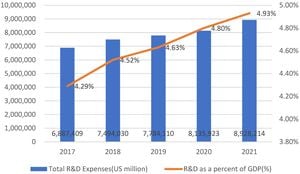Germany's 2025 federal elections have resulted in surprising outcomes, particularly within the Cologne III district. Rolf Mützenich, the long-standing leader of the SPD parliamentary group, found himself narrowly defeated, finishing second to the Green Party's Katharina Dröge.
The election, conducted on February 23, 2025, challenged the political status quo, highlighting the shifting preferences of voters. Dröge secured 26.0 percent of the votes, just edging out Mützenich, who managed 25.8 percent, marking his first loss after consistently winning his district since 2002.
The stakes were high, as these elections were not merely about who sits in the Bundestag but who will next be entrusted with the chancellorship. Voters had the chance to make their wishes known through two votes: one for direct candidates and another for party lists, influencing both personal representation and party power within parliament.
Mützenich expressed his disappointment, stating, "Ich empfinde es als Privileg, seit mehr als fünfeinhalb Jahren Fraktionschef zu sein. Dass ich auf einen so langen Zeitraum und den entsprechenden Erfahrungsschatz zurückgreifen kann, ist offenbar auch ein Mehrwert für andere," which reflects his recognition of his role and the contributions he believes he can still bring to the table.
The candidacy had been competitive, with Mützenich previously seen as the pre-eminent choice for constituents. His loss by fewer than 400 votes to Dröge denotes not just personal adversity but also signals a possible shift toward green policies among voters, as she campaigned vigorously on housing costs and sustainability efforts.
Alongside Dröge and Mützenich, Gisela Manderla of the CDU also vied for attention, having previously served two terms within the Bundestag. Her experience as the head of the Cologne Women's Union for over two decades put her on firm ground, yet her candidacy did not dominate the attention expected.
Spanning several districts, including Nippes, Riehl, and Longerich, Cologne III proved contentious, and as voters made their choices, it exposed divisions not only along party lines but also with regard to policy priorities, particularly housing and environmental issues.
Results from neighboring districts were also telling, with Sanae Abdi of the SPD winning in Cologne I, receiving 24.9 percent of the vote compared to CDU's Serap Güler at 24.6 percent. Similarly, Sven Lehmann of the Green Party led Cologne II with 34.1 percent.
Election night was marked by enthusiasm as voters sought change, and the results are likely to send ripples through party strategies heading toward future elections. The CDU's Manderla managed to capture attention, but not as much as Dröge's eco-oriented platform, which appears to resonate more with contemporary voter ethos.
The key takeaway from the 2025 elections is the evident need for established politicians to reconsider their platforms and connect with voters on pressing contemporary issues. Mützenich tweeted following the results, emphasizing the importance of learning from electoral feedback.
While overall results from the Bundestag reflect stabilization for major parties, the fringe elements such as the far-right might find renewed footing if trends continue, prompting all parties to address varying voter concerns more strategically moving forward.
This election signals potential adaptability and shifts within Cologne's political demographics, indicating where parties must head if they hope to maintain relevance and electoral success. With lessons gleaned from this election, parties like the SPD may now need to recalibrate their approaches to unity and strategy to align more closely with voters’ collective aspirations.



